Resurfaced Interview Sees Skies Of Arcadia Translator Admit Localization Team “Rewrote A Lot Of The Dialog Completely”

A previous interview with a localizer for Overworks’ Skies of Arcadia, in which they can be read admitting that they “ad-libbed” their way through localizing it, has resurfaced amidst the ongoing discourse regarding faithful English translations of Japanese works.

RELATED: Chrono Cross: The Radical Dreamers Edition Censors Panty Shots And Suggestive Dialogue
The interview, conducted by now-defunct Skies of Arcadia fansite EsoArcadia member Tony Nguyen with translator Klayton Vorlick in 2015, has had fresh attention drawn to it thanks to a recent tweet from Twitter user @Jeans_TV.
Sharing a screenshot of the interview wherein Vorlick discussed his attempts to ad-lib the script in order to shy away from what he deemed Armada Admiral Ramirez’s “creepy” obsession with his commanding officer and the game’s main antagonist, Galcian – in reality a portrayal of a young man completely bought into the misguided belief that their trusted mentor is the only one capable of leading the world – @Jeans_TV tweeted, “The more I hear from localizers, the more I dislike them.”

Between 2000 to 2005, Vorlick was a Localization Producer or translator on multiple Sega titles including Sonic Adventure 2, Shinobi, Panzer Dragoon Orta, and Otogi: Myth of Demons.
He would later act as a Senior Publishing Manager for such games as Valkyria Chronicles, Yakuza 2, Bayonetta, Senior Technical Project Manager for inFAMOUS 2, and Senior/Lead User Experience Researcher for Demon’s Souls and Ghost of Tsushima.
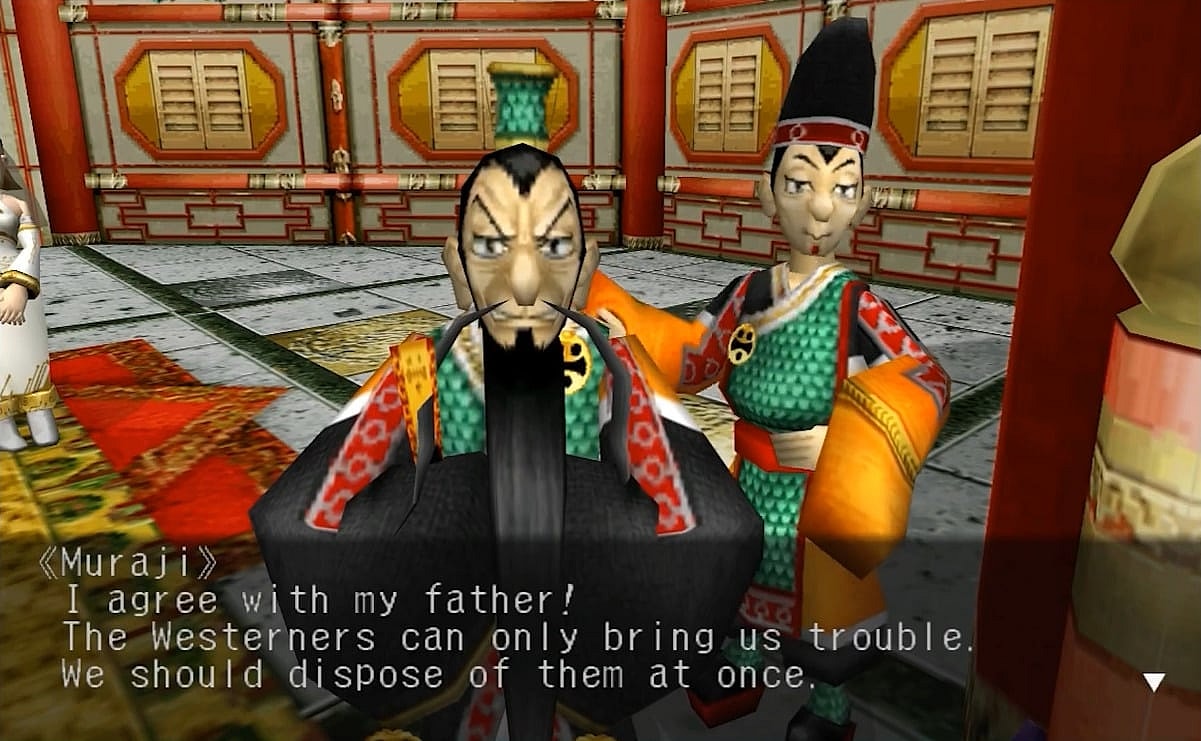
In the full interview, following a brief explanation from the translator that the game’s Vorlik Blade weapon was renamed from its original Dragon Flute/Ry-Kan’s Sword that Cuts Iron in his honor, Ngyuen turned to the topic of Vorlick’s translation, noting,”I played the game in Japanese too and it’s interesting what you guys changed, but it was the meaning that was more important than what’s being translated sometimes after all.”
“Although, there were some interesting changes, like how Ramirez’s obsession with Galcian was downtoned near the end,” he added. “I mean, he’s still obsessed, but he was saying like Galcian’s name like every other sentence in the Japanese version.”
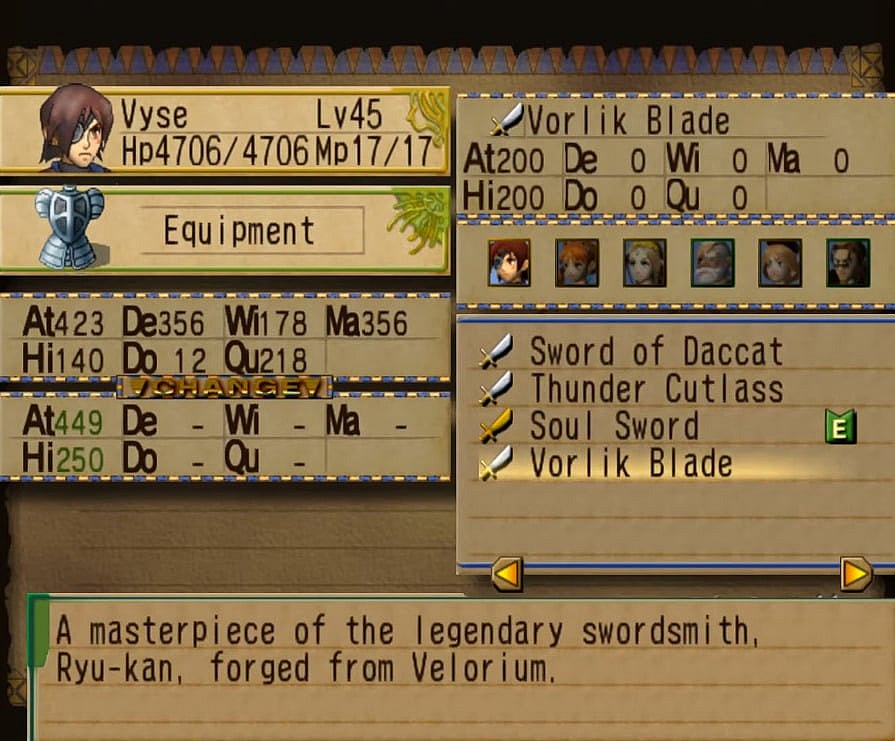
Replying, Vorlick confessed, “Yeah. We basically sat down, I did a rough translation of the text, and then threw away the Japanese text.”
“We mapped out the big story beats in each scene, and then just watched the cutscenes and ad-libbed what we imagined each character would say, and then rewrote a lot of the dialog completely,” he divulged, eliciting a reply of “Ah nice!” from Ngyuen upon learning one of his favorite games essentially had a made up script for English speakers.
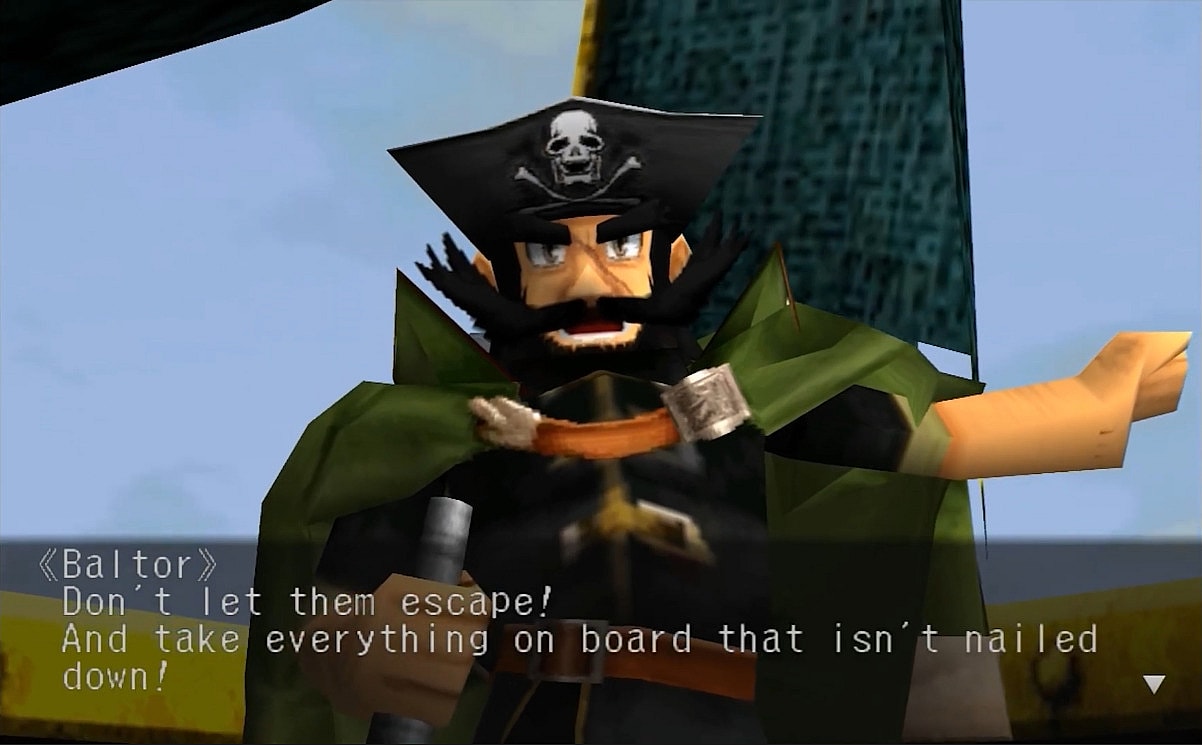
RELATED: Ghostwire: Tokyo English Localization Adds “Property Is Theft” Line Not Found In Original Japanese
“Haha, yeah. We thought it might be a little creepy for US audiences,” Vorlick continued. “That definitely makes it sound more natural,” opined Nguyen in return.
The translator then disclosed that he and fellow translator Chris Lucich (who notably conducted the English langauge translation of Panzer Dragoon and for whom the Luchich slime enemies, originally called Puranina, were renamed) “each took a couple characters and exclusively wrote their dialog so as to make sure they had unique voices.”

“I was Enrique, Vigoro, and Fina, for example,” he disclosed. “Chris was Gilder and Aika. So he did a lot of the humor. Vyse was both of us.”
He next revealed that it was not just swords and foes that had been renamed with staff in mind, but also “alot of the characters were named after various QA people, etc.”
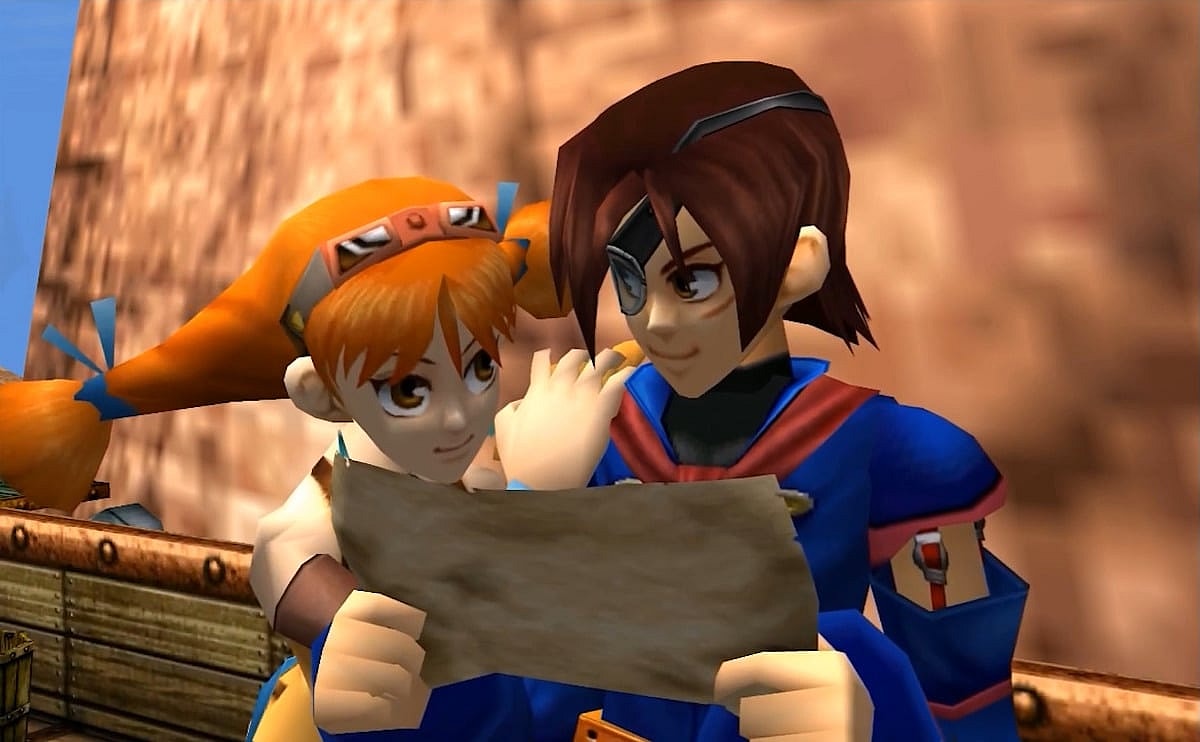
“Mabel the Raider was an assistant lead (Mabel Chung),” he explained in reference to the NPC Angela the Bottomless. “Timmus the Gunner” – formerly Tyrone the Roundhouse Neck Kicker – “was named after my friend Tim, who was the guy who got me my first industry job haha.”
“Yeah, we asked the team and they said go for it,” he clarified. “That was just a little bonus for us.” Volick also explained that Sharon had been renamed Lindsi after the game’s QA lead.

As documented by both the EsoArcadia Fandom wiki and fan Twitter account @AresArcadia, it appears that nearly every named enemy and area in the game was renamed in some capacity.
However, according to Vorlick, some of the changes were made with a more direct and censorious intent in mind.

“Removing cigarettes/cigars [such as from Gilder’s victory pose], changing beer to loqua, and adjusting some of the female character’s costumes was to reduce ESRB disclaimers and keep the rating low,” the translator confirmed.
Nguyen then brought up the censorship of blood during a scene where Ramirez draws his own while gripping a blade, Vorlick wistfully confessed, “Yeah, 2000 was a bit of a transitional year for the industry. People were still hesitant to let things get too mature.”

“I’m sure there were a ton of various references we threw in the text as well, but I’ve forgotten them all haha,” Vorlick stated, prompting Nguyen to compare how a quote from Gilder “about women being like sunsets” was originally “about doing the things that have never been done before.”
Laughing, Vorlick stated, “That was Chris. I shook my head when he came up with that line haha,” but ultimately agreed with Nguyen’s take that the changed line “totally fits the character.”

Vorlick further recalled, “I think my favorite line that he wrote was Vyse’s father in the beginning after he shoots the soldier and says something like ‘I only see 3 of you.'”
“In case you couldn’t tell, he’s a huge fan of Joss Whedon’s work and tries to emulate his style of nonchalant sarcasm haha,” he elaborated.
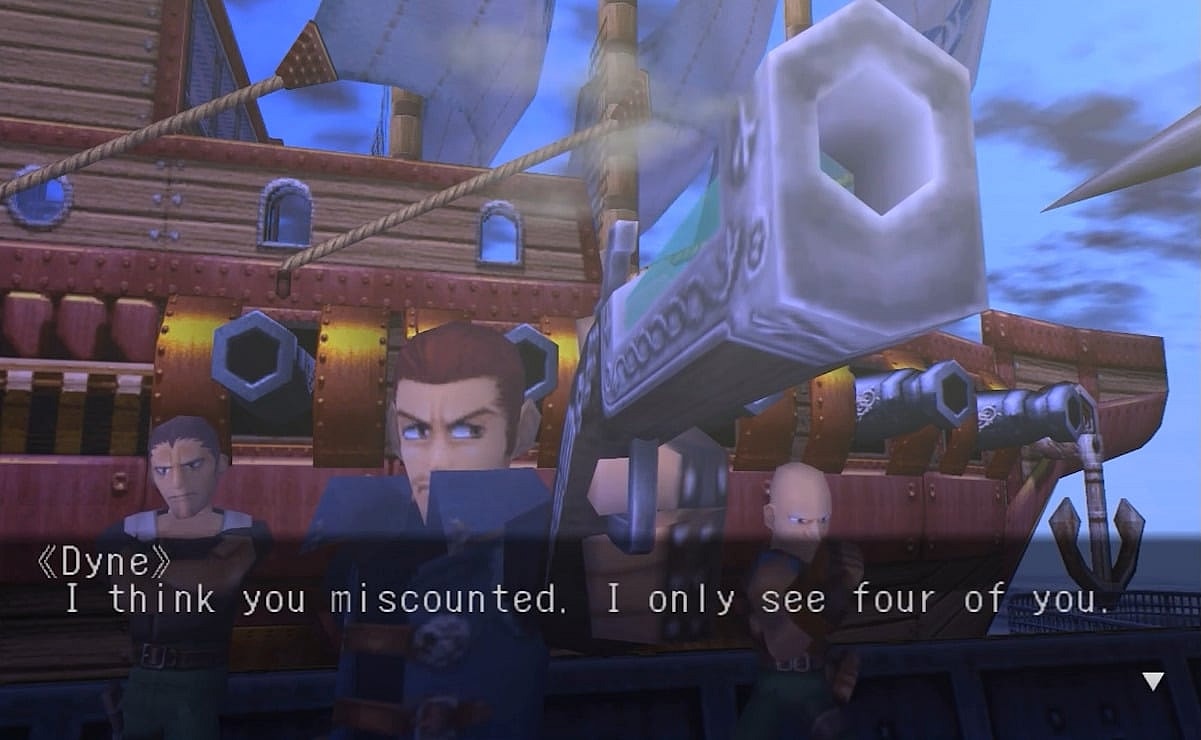
Turning to the scene where the Valuans realize Vyse and his crew have boarded their ship in an attempt to rescue high priest Isapa, Nguyen compared this attempt at “nonchalant sarcasm” to ” the sarcasm that was sprinkled into the translation when it was played totally straight in the original Japanese.”
Giving the scene where “De Loco [can] be seen mocking Alfonso about what gave away that there were intruders [with the sarcastic lines] ‘Was it the sirens? Or the loud noises? What gave it away?'”
“Haha that one was me,” Vorlick proudly admitted. A comparison of that scene’s dialogue, as shared by @AresArcadia in 2019, can be seen below.
One of the quirks with the Skies of Arcadia localization is they tended to change scenes played straight in the original Japanese with sarcasm. For example, De Loco does not mock Alfonso when he reports that Vyse has arrived in Japanese. pic.twitter.com/VGaG2ZDH1J
— Ares Arcadia (@AresArcadia) April 13, 2019
Reflecting on his overall time in the Skies, Vorlick revealed, “Yeah, that game took like 4 months of nonstop work (like 80-100 hour work weeks) to finish. I think I ended up translating like 2000 pages of text.”
Agreeing with Nguyen’s assertion that the end result “was definitely a labor of love and it shows!” the translator added that it was “still the project I’m the proudest of.”

RELATED: My Hero Academia Fans Accuse My Hero One’s Justice 2 Season 2 DLC Featuring Midnight Of Censorship
After a discussion of how Producer Rieko Kodama and Lead Designer Shun Tanaka have no recollection of the game’s scrapped ship value system, Vorlick remembered a specific change he implremented, exclaiming, “Oh! I was also the one that got them to add the press-start-to-skip-animation for spells and stuff haha”.
“Because i was pissed at Final Fantasy not letting me skip haha,” he explained as his interview with Nguyen concluded. “Seriously. Played an early version of the game and that was my first bit of feedback haha.”
Pictured are translations for each area whose name was changed during localization in Skies of Arcadia. Also is my attempt to translate the English localization to Japanese. I'll post thoughts and trivia about each name change in the coming days. pic.twitter.com/L6N3l4aHhA
— Ares Arcadia (@AresArcadia) January 22, 2020
Further insight into the early days of Japanese-to-English video game translation and localization was provided by both Vorlick and Lucich in a 2000 joint-interview given to IGN (updated in 2012) regarding their work on Skies of Arcadia.
“The main cultural element that had to be swapped out was the use of the idioms of language,” he explained. “We’ve already gone through about three or four passes on the text, and it’s not even past Alpha yet, We’ve been working very closely with Sega of Japan on the script to get it right and work well for our audience.”
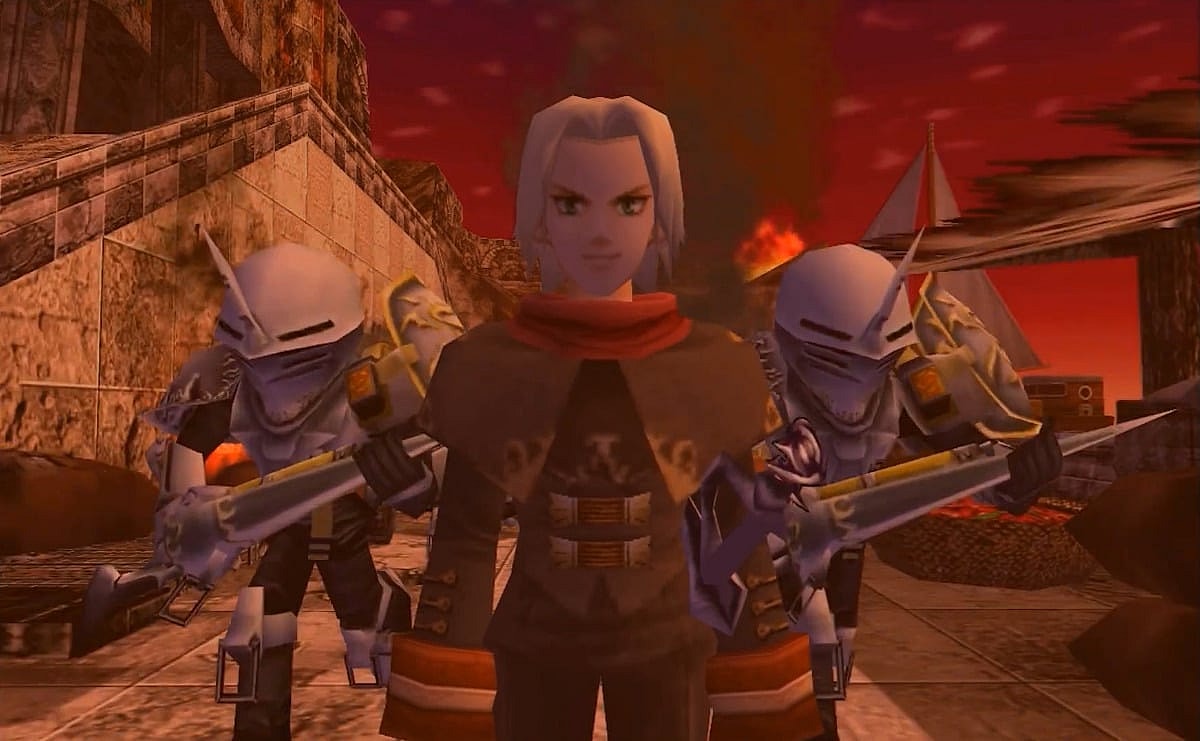
RELATED: Kotaku Hates Lost Ark’s Sexy Outfits Despite Western Release Already Being Censored
Lucich clarified, “We have creative freedom, but they have veto power.”
“Right, we can’t just do whatever we come up with and run wild on the game,” Vorlick replied.
“Sometimes we say, ‘We’d like to do this.’,” Lucich continued, “And they think it through and figure out that, no, it doesn’t quite work for where they’re going.”

Vorlik added, “And then we work our way around and with their ideas.”
“It’s a trust relationship here, and the most important part of that is that we love the game, and we want to keep as much of that experience from the Japanese game in the American version,” he said, before admitting, “That does involve some changes, some line-to-line dialog and word choice, but nothing major.”
“The words may change, but the scenes won’t,” Lucich reassured. “All of the scenes of the Japanese game will be in the American version in tact, in order. There are also little issues in translation with a line’s size. With Panzer [Dragoon] especially, I would only have one line of 27 characters, and it was time driven stuff.”
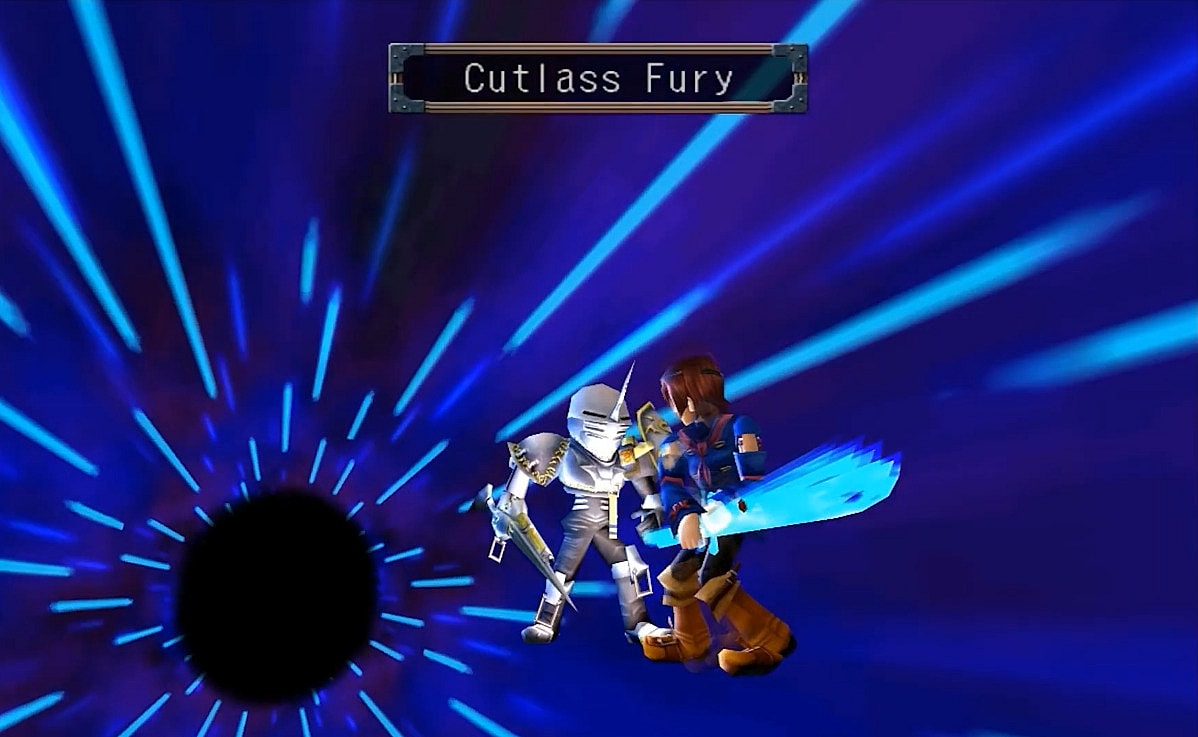
Lucich then detailed, “The Japanese language can express so much with a single character, because of the way the alphabet is symbolic, whereas with English, I have to type all of that out and fit it into a very small space of time and letters. In this game, we have three lines of 48 characters, so when you search an item, it’s not just gonna say ‘A cup’ –”
“You could have it say ‘You see the stain of leftover coffee’, or something like that,” Vorlick interjected. “We’ve tried to put as much detail as possible in the game. You go to a trade city, for instance, and look at a box, and it’ll say, ‘The aroma of herbs and spices emanates from the box,’ or something like that, instead of just saying ‘It’s a box.'”
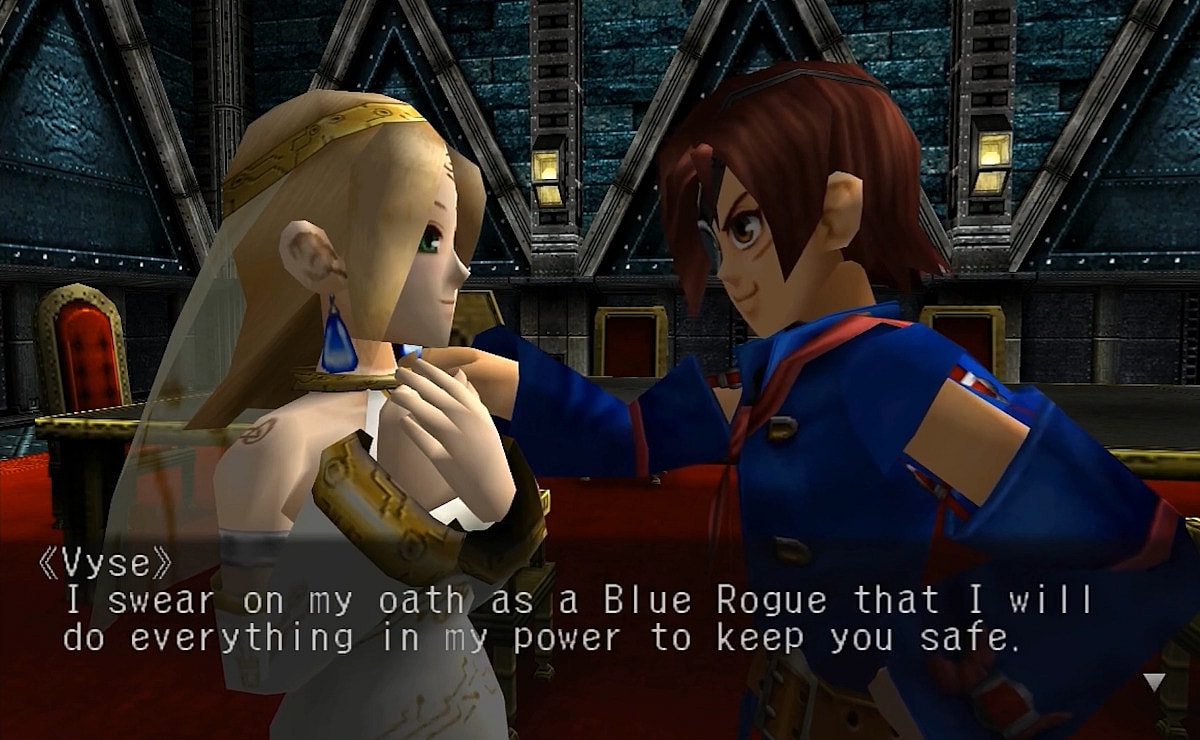
“We also have enough room so that all the characters can speak differently,” Lucich noted, before Vorlick continued. “Each character has very unique ways of speaking, very unique personalities. A big part of the story is how these characters interact with one another, and that leads to a lot of the dramatic scenes, as well as the comedic scenes.”
“We’ve taken painstaking detail in working with the Japanese team and keeping that same sense of high adventure, and making it more marketable for the US, rather than having a lot of the baby talk you see in the older RPGs,” he stated.

“We’ve grown up playing these games, and we know a lot of the frustrations,” Vorlick empathised. “Many say that the downfall of all RPGs is the localization, and we don’t want that to fall on our shoulders. We’re doing as best as we can to make this sound like a real story rather than something that sounds as if someone translated it.”
For his part, Lucich closed, “Hopefully, by the time you finish this game, you’ll feel like you’ve grown up with these characters, like you know ’em. Have you guys read the Dragon Lance novels?”
Similarly, Vorlick concluded, “You would know how the characters would behave in any given situation, and that’s what we tried to get in this game. By the end of the game, you kinda know, Vyse is going to do this, and so on. You can kinda anticipate almost. Sometimes they’ll throw you a little curve ball, but you will know these characters like the back of your hand.”

While Vorlick’s comments to IGN may seem to clash with those he gave to EsoArcadia, it is entirely within the realm of possibility that they requested and were ultimately given approval by the original creators to loosely adapt the story however they could to maximize sales in the US.
Of course, his comments would also suggest that the developers wished to work closely with the localizers in adapting their work for the Western market, rather than being presented with a rough estimated script full of lines that were “ad-libbed,” and as such, raises the question of whether or not Sega was actually happy with the final product.
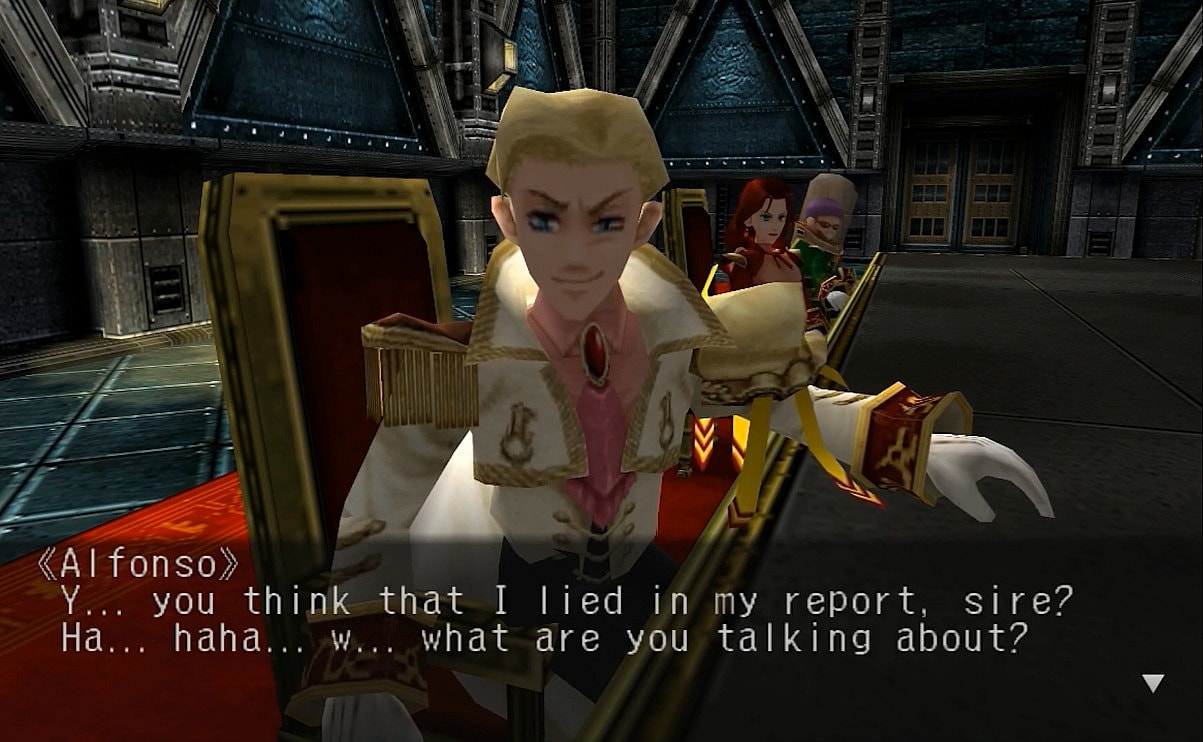
A full list of localization changes can be found via the EsoArcadia Fandom wiki.
What do you think of Vorlick’s insights into Skies of Arcadia’s localization? Let us know your thoughts on social media and in the comments below!
